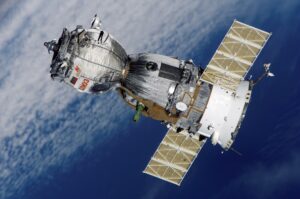The Positive Impact of Space Exploration on Earth’s Environment
Space exploration benefits extend beyond the realm of interstellar travel and scientific discovery. While the focus of space exploration may seem distant, its impact on Earth’s environment is significant and tangible. Mankind benefits from space travel in countless ways, and the positive impact on our environment cannot be overstated.
One of the most notable ways in which space exploration improves our lives is through environmental monitoring. Satellites and other space-based technologies allow us to gather crucial data on Earth’s climate, weather patterns, and natural resources. This information enables us to better understand and address climate change, air pollution, deforestation, and other pressing environmental issues. By providing real-time data and comprehensive observations, space research equips us with the tools necessary to make effective and informed decisions for a more sustainable future.
Additionally, the everyday benefits of space research can be found in the development of spin-off technologies. Scientists and engineers working on space exploration projects often invent and refine technologies that find applications in various industries. From the miniaturization of electronics to the creation of lightweight and durable materials, these advancements have far-reaching implications. For example, the development of insulation materials used in spacesuits has led to energy-efficient solutions for buildings on Earth. By driving innovation in multiple sectors, space exploration not only enhances our quality of life but also contributes to sustainable development on our planet.
The positive impact of space exploration on Earth’s environment cannot be overstated. From environmental monitoring to spin-off technologies, the benefits of space research have a direct and lasting influence on our lives. As we continue to explore the depths of the cosmos, let us also remember how these endeavors positively shape our planet.
Advancements in Communication Technologies through Space Exploration

Advancements in communication technologies have been a direct result of space exploration initiatives. The development of satellites and space-based communication systems has revolutionized global connectivity. These spin-off technologies from space programs have greatly impacted various industries and have improved the way we share information on a global scale.
Moreover, space exploration has not only fostered technological advancements but also contributed to a deeper understanding of Earth’s communication systems and their interconnectivity. By studying the impact of space exploration on Earth, scientists have gained valuable insights into the functioning of our planet’s complex communication networks. This knowledge will prove vital in addressing the challenges of the future, both in terms of communication technologies and the overall well-being of humanity.
As we look towards the future of space exploration, the potential for further advancements in communication technologies is immense. With ongoing scientific discoveries, we can expect even more efficient and robust systems that will enhance our ability to communicate globally. As humanity pushes the boundaries of exploration, we can be confident that the beneficial spin-off technologies and the knowledge gained will continue to drive innovation in communication technologies, ultimately benefiting society at large.
ALSO READ: Unveiling the Secrets of the Cancer Constellation: A Stellar Guide
The Role of Space Exploration in Economic Growth

Space exploration plays a crucial role in driving economic growth through various avenues. One of the key ways it contributes to economic prosperity is through technological advancements. The continuous pursuit of space exploration pushes the boundaries of human knowledge and fosters innovation, which in turn fuels advancements in other industries. For instance, the rigorous demands of space travel have led to the development of lightweight materials, more efficient energy systems, and advanced robotics. These technological breakthroughs not only benefit space missions but also find applications in sectors such as transportation, manufacturing, and renewable energy. Consequently, space exploration acts as a catalyst for technological progress, spurring economic growth and creating new opportunities for industries around the world.
Another significant economic impact of space exploration stems from the medical breakthroughs it enables. Space research has paved the way for advancements in healthcare, leading to improved diagnostic tools, enhanced medical procedures, and the development of life-saving technologies. For instance, studies conducted on astronauts have provided valuable insights into the effects of microgravity on human physiology, shedding light on various health conditions and opening doors for new treatments. Additionally, the harsh environment of space necessitates the creation of innovative medical devices and techniques that can address emergencies and sustain human life. As a result, the medical field benefits immensely from space exploration, creating a ripple effect on economies through improved healthcare outcomes and the growth of medical technology industries.
Moreover, space exploration plays a vital role in environmental monitoring, which has economic implications. Satellites equipped with sophisticated sensors gather critical data on climate patterns, deforestation rates, pollution levels, and other environmental parameters. This data is essential for policymakers and businesses in making informed decisions regarding resource management, disaster response, and sustainable development. By utilizing space technologies for environmental monitoring, governments and organizations can mitigate environmental risks effectively, protect natural resources, and promote sustainable practices. In doing so, space exploration contributes to economic stability and long-term growth by preserving the Earth’s ecosystems and maintaining a healthy environment for future generations.
Lastly, advancements in communication technologies resulting from space exploration also profoundly impact the economy. Satellites are instrumental in enabling global communication networks, providing reliable and secure internet connectivity, facilitating telecommunication services, and supporting international collaborations. These satellite-based communication systems are essential for a wide range of industries, including telecommunication providers, remote sensing applications, and global navigation systems. By enhancing connectivity and bridging communication gaps worldwide, space exploration helps foster global trade, collaboration, and economic integration.
ALSO READ: How the James Webb Space Telescope helps us find exoplanets
Inspiring the Next Generation: Education and Inspiration through Space Exploration

Space exploration not only has significant effects on the economy and technological advancements but also plays a crucial role in inspiring and educating the next generation. The exploration of space has the power to spark a sense of curiosity and wonder in young minds, igniting their passion for science, technology, engineering, and mathematics (STEM) subjects. As they learn about the incredible achievements and discoveries made through space exploration, students are inspired to pursue careers in fields that contribute to economic growth and societal progress.
Moreover, space exploration serves as a remarkable source of inspiration and education, encouraging young individuals to dream big and think outside the box. By witnessing the boundless possibilities that exist beyond Earth, students are empowered to push the boundaries of their imagination and broaden their horizons. The international cooperation involved in space missions further emphasizes the importance of collaboration and unity for the betterment of humanity. Through educational programs and initiatives, space agencies and organizations actively engage with schools and universities, sharing knowledge and fostering a sense of excitement about the space future. These efforts ensure that the next generation is well-prepared and equipped to tackle the challenges and opportunities that lie ahead in the realm of space exploration.
Scientific Discoveries and Breakthroughs Enabled by Space Exploration

Scientific discoveries and breakthroughs have been greatly facilitated by the exploration mindset embraced in space exploration endeavors. The challenges and opportunities presented by venturing into the unknown have pushed scientists and researchers to think creatively and push the boundaries of what is possible. This mindset has resulted in numerous advancements and breakthroughs that have had a profound impact on various scientific fields.
One area that has benefited greatly from space exploration is satellite technology. Satellites play a crucial role in enabling communication, weather forecasting, and navigation systems like GPS. These technologies have revolutionized our daily lives and have become an integral part of modern society. The development of satellites has not only enabled us to communicate with people around the world but has also provided us with crucial data for weather forecasting, helping us better prepare for and mitigate the impact of natural disasters. In addition, the navigation systems powered by satellites have made it easier for us to navigate unfamiliar territories and have transformed the way we travel. These advancements in satellite technology are just a glimpse of the many scientific discoveries and breakthroughs made possible by space exploration.
Technological Advancements: How Space Exploration Drives Innovation

Technological advancements resulting from space exploration have played a pivotal role in driving innovation across multiple sectors. One such area is weather forecasting, where the data and observations gathered from space have significantly improved our ability to predict and understand weather patterns. Satellites equipped with advanced sensors and instruments provide real-time information on atmospheric conditions, helping meteorologists to develop more accurate forecasts. This has proved invaluable in supporting disaster management efforts, allowing for better preparedness and response to extreme weather events such as hurricanes, tornadoes, and floods.
Furthermore, space exploration has also been instrumental in addressing the global challenge of climate change. Satellites enable scientists to monitor Earth’s climate system at a global scale, providing critical data on temperature, sea level rise, ice cover, and greenhouse gas concentration. This information is vital for understanding the extent of climate change and its impacts on our planet. Additionally, space-based technologies have fueled the development of renewable energy sources such as solar and wind power. By studying the Sun’s energy output and observing wind patterns from space, we have been able to optimize the efficiency and effectiveness of renewable energy systems, contributing to the transition to a more sustainable and clean energy future.
ALSO READ: Space Tourism Dreams: How Close Are We to Vacationing in Space?
Medical Breakthroughs and Innovations Resulting from Space Research

One area where space research has had a significant impact is the field of water purification. The need for clean and safe water for astronauts in space has led to the development of advanced filtration and purification systems that can effectively remove contaminants. These technologies have not only benefited astronauts but also have profound implications for communities on Earth that struggle with access to clean drinking water. The advancements in water purification methods resulting from space research can help to address global water scarcity issues and improve public health.
Another field that has seen remarkable advancements due to space research is materials science. To withstand the extreme environments of space, scientists and engineers have developed innovative materials that are sturdier, lighter, and more resistant to heat and radiation. These materials have applications beyond space exploration and have revolutionized the field of medicine. For instance, advancements in materials science have led to the development of stronger and more durable artificial limbs and implants, enhancing the quality of life for individuals with disabilities. Additionally, these materials are also used in protective gear for healthcare professionals, contributing to the safety and well-being of medical professionals worldwide.
Environmental Monitoring: Using Space Technology to Understand and Address Climate Change

Environmental monitoring is a crucial aspect of understanding and addressing climate change. Thanks to advancements in space technology, scientists now have access to valuable data and insights that enable them to obtain a comprehensive understanding of our planet’s changing climate. Satellites equipped with advanced sensors and instruments allow for the collection of precise measurements, providing a global perspective on key environmental indicators such as temperature, air quality, and sea ice extent. Furthermore, space technology has also played a crucial role in developing virtual reality simulations to help visualize and analyze complex climate data, allowing researchers to explore various scenarios and better comprehend the potential impacts of climate change.
The benefits of space technology extend beyond Earth, as it also contributes to our understanding of other celestial bodies. Through Mars exploration and Moon missions, scientists have gained invaluable insights into the dynamics of different planetary environments, bringing us closer to unlocking the mysteries of our solar system. Additionally, the research conducted during these missions often has indirect applications for studying Earth’s climate. Another promising avenue is asteroid mining, which not only holds promise for resource extraction but also enhances our understanding of the composition of celestial bodies and the potential impact they may have on Earth. These ventures into space provide scientists with additional tools and knowledge to better understand our planet’s climate and inform policies and actions to mitigate climate change’s adverse effects.
Spin-off Technologies: How Space Programs Benefit Everyday Life
Space exploration not only expands our understanding of the universe and our place in it, but it also has numerous practical applications that directly impact our everyday lives. One such spin-off technology is space tourism. As private companies and entrepreneurs invest in space travel, the advancements in spacecraft design and technology have the potential to revolutionize transportation on Earth. These innovations may lead to the development of faster, more efficient modes of travel, making our daily commutes and long-distance journeys quicker and more sustainable.
Furthermore, the pursuit of interstellar travel and the search for extraterrestrial life have spurred innovation in the field of propulsion systems. The need to travel vast distances in space has prompted scientists and engineers to develop new technologies that push the boundaries of speed and efficiency. As a result, these advancements have the potential to revolutionize terrestrial transportation as well, enabling us to reach our destinations faster while reducing our reliance on fossil fuels. Additionally, the technologies developed for exploring cosmic phenomena, such as powerful telescopes and imaging systems, have also found applications in a wide range of industries, from medicine to telecommunications. These spin-off technologies not only improve our understanding of the universe but also benefit our daily lives in ways we never imagined.
The Future of Space Exploration: Challenges, Opportunities, and the Path Ahead
The future of space exploration presents a plethora of challenges, accompanied by exciting opportunities. One of the main challenges lies in unraveling the origins of the universe. As scientists delve deeper into space, seeking answers to questions that have puzzled humanity for centuries, they face the arduous task of deciphering the complexities of cosmic expansion, dark matter, and the nature of black holes. The enormity of these challenges demands a multidisciplinary approach, with astronomers, physicists, and cosmologists working hand in hand to push the boundaries of human knowledge. However, despite the obstacles standing in their path, the potential rewards are immense. By understanding the origins of the universe, we can gain insights into our place in the cosmos and unlock new avenues for technological advancements and scientific breakthroughs.
In addition to unraveling the mysteries of the universe, space exploration offers a wide range of opportunities for scientific and technological advancements. With continued investment and research, we can develop more efficient propulsion systems, advanced materials, and innovative technologies that have applications both in space and on Earth. Moreover, space exploration drives international collaboration, fostering partnerships between nations and encouraging the exchange of knowledge and resources. As we venture further into space, the challenges we face pave the way for discoveries and innovations that have the potential to transform our understanding of the universe and improve life on our planet. By embracing these opportunities, we can propel humanity toward a future where space exploration becomes an integral part of our quest for knowledge and progress.
Overall, the future of space exploration is filled with both challenges and opportunities. Through a rigorous pursuit of scientific understanding and technological innovation, we can overcome the difficulties that lie ahead and continue our journey to unravel the mysteries of the universe. By doing so, we not only expand our knowledge and capabilities but also inspire future generations to dream big and strive for new frontiers. The path ahead may be challenging, but with determination and collaboration, we can navigate it and shape a future where the endless possibilities of space exploration become a reality.
What is the positive impact of space exploration on Earth’s environment?
Space exploration allows us to monitor and understand Earth’s environment more effectively, leading to improved environmental management and conservation efforts.
How has space exploration contributed to advancements in communication technologies?
Space exploration has driven the development of communication satellites, enabling global connectivity and revolutionizing our ability to communicate across long distances.
What role does space exploration play in economic growth?
Space exploration stimulates economic growth by creating jobs, fostering innovation, and generating new industries and technologies.
How does space exploration inspire the next generation?
Space exploration captivates and ignites curiosity in young minds, encouraging them to pursue education and careers in science, technology, engineering, and mathematics (STEM) fields.
What scientific discoveries and breakthroughs have been enabled by space exploration?
Space exploration has led to significant scientific discoveries, such as the understanding of black holes, the discovery of exoplanets, and advancements in astronomy and astrophysics.
How does space exploration drive technological advancements?
Space exploration pushes the boundaries of technology, resulting in innovations that have practical applications on Earth, such as in transportation, materials science, and robotics.
What medical breakthroughs and innovations have resulted from space research?
Space research has contributed to medical advancements, including telemedicine, improved understanding of bone and muscle loss, and the development of life-saving medical technologies.
How is space technology used for environmental monitoring and addressing climate change?
Space technology allows for accurate monitoring of Earth’s climate, enabling scientists to study the effects of climate change, assess environmental damage, and develop strategies for mitigation and adaptation.
How do space programs benefit everyday life through spin-off technologies?
Space programs have led to the development of numerous spin-off technologies that are now commonly used in everyday life, such as GPS navigation, memory foam, and scratch-resistant lenses.
What challenges and opportunities lie ahead for the future of space exploration?
The future of space exploration presents challenges such as the need for sustainable space travel and exploration, international cooperation, managing space debris, and addressing ethical considerations. However, it also provides opportunities for further scientific discoveries, technological advancements, and the potential for human colonization of other celestial bodies.
